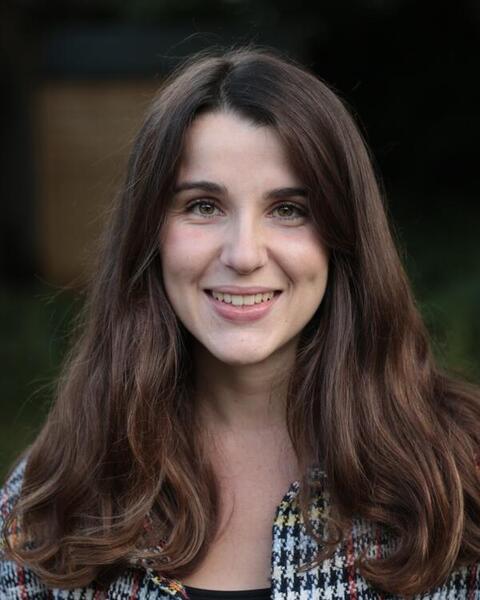2025 - 2026 Franke Fellows
Franke Undergraduate Fellows

Andrew Maglio
Explaining the Unexaminable: Teleology in Mid-Twentieth Century Biology
Andrew Maglio is a junior at Yale studying history. He is primarily interested in political theory and the history and philosophy of science. His research as a Franke Fellow examines the different conceptions of teleology that biologists endorsed after the solidification of the modern synthesis. He is specifically interested in drawing out the methodological, epistemological, and cultural differences that motivated divergent theorizing as well as in tracing the interactions among these scientists’ beliefs.

Rediet Taye
Rediet was born in Zimbabwe to Ethiopian parents and spent all her life in Kenya. She loves birding, hanging out in the Branford pottery studio, reading African novels, chatting to strangers, tracking wildlife, eating mangoes and carving a small collection of wooden antelopes. She is a ’26 Ecology and Evolutionary Biology BSc student who has always been passionate about the natural world and the ways in which we ought to study it. Her specialty combines conservation historiography in sub-Saharan Africa with wildlife spatial ecology, and she is interested in how these disciplines interact with Indigenous realities under contemporary wildlife management models. Her senior thesis project is a unique, interdisciplinary, provocative confrontation with Kenya’s conservation narratives, and she gets to see the incredible wildebeest migration too!
Franke Graduate Fellows

Sebastián Andrés Grandas

Maia Vitarini Lwin

Dalena Ngo
Rise of the Medical University
Yale bought out the only other hospital in New Haven and has now become the preeminent hospital system in Connecticut. UCSF recently bought two hospitals in San Francisco to consolidate its hold over healthcare in the Bay Area. Some universities have established hospitals across state lines and overseas, Cleveland Clinic operates in Florida, Canada, England, and UAE; Johns Hopkins Medicine International consults, manages, collaborates, or operates in over twenty countries; and University of Pittsburgh Medical Center controls over forty locations globally. Even the academic health center model, a uniquely American structure, has transcended the confines of the U.S. and been exported to other universities such as Cambridge, University of the Philippines, and the University of Namibia. This makes the university/hospital dyad an essential actor in urban development, town-gown relations, and terms of employment. As academic health centers expand and complex healthcare demands grow, more areas will be dependent on the evolving yoke of meds and eds. Dalena’s research examines the historical roots of this phenomenon, the ways in which the university has been transformed into a hospital, and what the future holds for the medical university.

Hayley Serpa
Franke Post-Doctoral Fellows

Irene Echeverria-Altuna
Internal Attention for Lexical Item Prioritization
This project brings together insights from linguistics and cognitive neuroscience to investigate how we search and prepare words as we get ready to speak them. It explores the idea that retrieving words may draw on “internal attention” — the capacity to direct focus toward our memories, thoughts, and action plans. By combining carefully designed language tasks with measurements of brain activity, the project bridges theoretical accounts of how language is structured with experimental studies of how attention and memory operate in the brain. In doing so, it aims to shed new light on the interplay between memory, attention, and language.